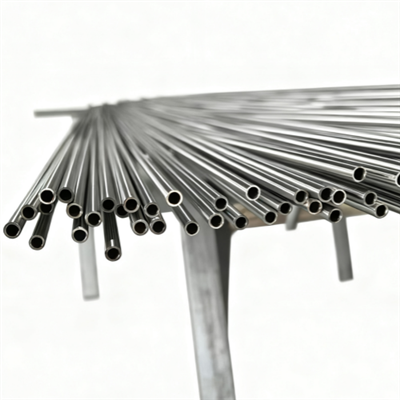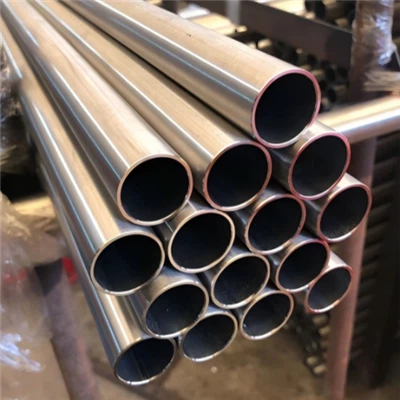Hey there! I'm an Inconel 625 pipe supplier, and today I want to dive into the properties of Inconel 625 pipe at cryogenic temperatures. Cryogenic applications, like those in the aerospace, energy, and scientific research fields, demand materials that can perform reliably under extremely cold conditions. Inconel 625 is one such material that has proven its mettle in these challenging environments.
Chemical Composition and General Overview
First off, let's talk a bit about what Inconel 625 is. It's a nickel-based superalloy, with a chemical composition that includes around 58% nickel, 20 - 23% chromium, 8 - 10% molybdenum, and 3.15 - 4.15% niobium (columbium). The combination of these elements gives Inconel 625 some pretty amazing properties, even at room temperature. It's highly resistant to corrosion, both in oxidizing and reducing environments, and it has excellent mechanical strength and toughness.
Tensile and Yield Strength at Cryogenic Temperatures
When it comes to cryogenic temperatures, Inconel 625 really shines. As the temperature drops, the tensile and yield strength of Inconel 625 actually increase. This is a huge advantage in cryogenic applications where components need to withstand high stresses. For example, in liquefied natural gas (LNG) storage and transportation systems, pipes need to be able to handle the pressure of the cold, dense liquid. Inconel 625 pipes can maintain their structural integrity under these conditions, reducing the risk of leaks or failures.
The increase in strength at cryogenic temperatures is due to the alloy's microstructure. At low temperatures, the movement of dislocations (defects in the crystal structure) is restricted, which makes the material harder and stronger. This means that Inconel 625 pipes can be used in applications where high strength is required, even in the extreme cold.
Ductility and Toughness
Another important property of Inconel 625 at cryogenic temperatures is its ductility and toughness. Ductility refers to a material's ability to deform plastically before breaking, while toughness is the ability to absorb energy before fracturing. Inconel 625 retains good ductility and toughness at cryogenic temperatures, which is crucial for preventing brittle fracture.
Brittle fracture can be a major problem in cryogenic applications, as it can occur suddenly and without warning. Inconel 625's ability to deform plastically and absorb energy helps to prevent this type of failure. For example, in cryogenic piping systems, if a pipe is subjected to an impact or a sudden change in pressure, the ductility and toughness of Inconel 625 allow it to absorb the energy and deform without breaking.
Corrosion Resistance
Corrosion is always a concern in any application, but it can be especially problematic at cryogenic temperatures. Moisture can condense on the surface of pipes, and the presence of oxygen and other corrosive agents can lead to corrosion. Inconel 625 has excellent corrosion resistance at cryogenic temperatures, thanks to its high nickel and chromium content.
The nickel in Inconel 625 provides resistance to corrosion in reducing environments, while the chromium forms a passive oxide layer on the surface of the material, which protects it from oxidation. This means that Inconel 625 pipes can be used in cryogenic applications where corrosion is a concern, such as in chemical processing plants and LNG facilities.
Thermal Conductivity
Thermal conductivity is another important property to consider in cryogenic applications. Inconel 625 has relatively low thermal conductivity, which is an advantage in cryogenic systems. Low thermal conductivity helps to minimize heat transfer, which is important for maintaining the low temperatures required in these applications.
For example, in LNG storage tanks, pipes made of Inconel 625 can help to reduce heat transfer from the surrounding environment, which helps to keep the LNG in its liquid state. This can lead to energy savings and improved efficiency in the storage and transportation of LNG.
Comparison with Other Alloys
When it comes to cryogenic applications, Inconel 625 is not the only option. There are other alloys, such as Monel 400 Pipe, Alloy C22 Seamless Pipe, and Hastelloy C276 Pipe, that are also used in these applications.
Monel 400 is a nickel-copper alloy that has good corrosion resistance and mechanical properties at cryogenic temperatures. However, it has lower strength than Inconel 625, which may limit its use in applications where high strength is required.


Alloy C22 is a nickel-chromium-molybdenum alloy that has excellent corrosion resistance in a wide range of environments, including cryogenic ones. It has similar strength and ductility to Inconel 625, but it may be more expensive.
Hastelloy C276 is another nickel-chromium-molybdenum alloy that is known for its high corrosion resistance. It has good mechanical properties at cryogenic temperatures, but like Alloy C22, it may be more expensive than Inconel 625.
Applications of Inconel 625 Pipe at Cryogenic Temperatures
Inconel 625 pipes are used in a variety of cryogenic applications, including:
- LNG storage and transportation: Inconel 625 pipes are used in LNG storage tanks, pipelines, and transfer systems. Their high strength, ductility, and corrosion resistance make them ideal for these applications.
- Aerospace: Inconel 625 pipes are used in aerospace applications, such as in cryogenic fuel systems. Their ability to withstand high stresses and low temperatures makes them suitable for these demanding applications.
- Scientific research: Inconel 625 pipes are used in scientific research facilities, such as in cryogenic laboratories. Their excellent mechanical and corrosion properties make them useful for a variety of experiments and applications.
Conclusion
In conclusion, Inconel 625 is an excellent choice for cryogenic applications. Its high strength, ductility, toughness, corrosion resistance, and low thermal conductivity make it a reliable and versatile material. Whether you're in the LNG industry, aerospace, or scientific research, Inconel 625 pipes can provide the performance and reliability you need.
If you're looking for high-quality Inconel 625 pipes for your cryogenic application, I'd love to talk to you. I can provide you with the right pipes at the right price, and I can also offer technical support and advice. Don't hesitate to reach out and start a conversation about your specific needs.
References
- ASM Handbook, Volume 2: Properties and Selection: Nonferrous Alloys and Special-Purpose Materials
- "Cryogenic Properties of Metals and Alloys" by R. P. Reed and A. F. Clark
- Manufacturer's technical data sheets for Inconel 625






